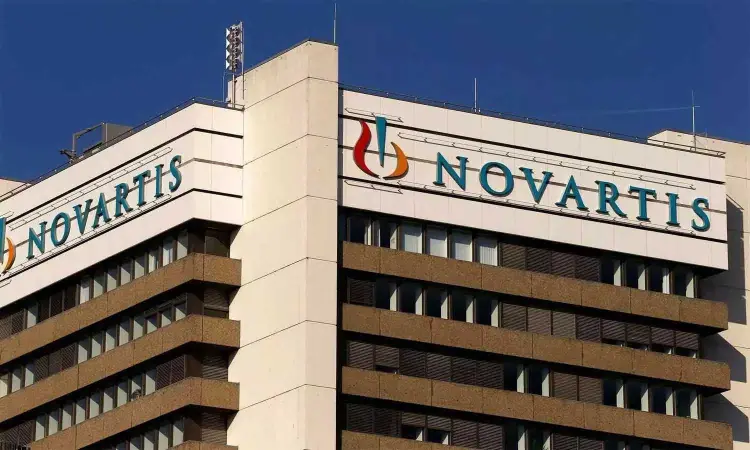- Home
- Medical news & Guidelines
- Anesthesiology
- Cardiology and CTVS
- Critical Care
- Dentistry
- Dermatology
- Diabetes and Endocrinology
- ENT
- Gastroenterology
- Medicine
- Nephrology
- Neurology
- Obstretics-Gynaecology
- Oncology
- Ophthalmology
- Orthopaedics
- Pediatrics-Neonatology
- Psychiatry
- Pulmonology
- Radiology
- Surgery
- Urology
- Laboratory Medicine
- Diet
- Nursing
- Paramedical
- Physiotherapy
- Health news
- Fact Check
- Bone Health Fact Check
- Brain Health Fact Check
- Cancer Related Fact Check
- Child Care Fact Check
- Dental and oral health fact check
- Diabetes and metabolic health fact check
- Diet and Nutrition Fact Check
- Eye and ENT Care Fact Check
- Fitness fact check
- Gut health fact check
- Heart health fact check
- Kidney health fact check
- Medical education fact check
- Men's health fact check
- Respiratory fact check
- Skin and hair care fact check
- Vaccine and Immunization fact check
- Women's health fact check
- AYUSH
- State News
- Andaman and Nicobar Islands
- Andhra Pradesh
- Arunachal Pradesh
- Assam
- Bihar
- Chandigarh
- Chattisgarh
- Dadra and Nagar Haveli
- Daman and Diu
- Delhi
- Goa
- Gujarat
- Haryana
- Himachal Pradesh
- Jammu & Kashmir
- Jharkhand
- Karnataka
- Kerala
- Ladakh
- Lakshadweep
- Madhya Pradesh
- Maharashtra
- Manipur
- Meghalaya
- Mizoram
- Nagaland
- Odisha
- Puducherry
- Punjab
- Rajasthan
- Sikkim
- Tamil Nadu
- Telangana
- Tripura
- Uttar Pradesh
- Uttrakhand
- West Bengal
- Medical Education
- Industry
Novartis Kisqali significantly reduced risk of recurrence by 25% across broad population of patients with early breast cancer: Novartis

Basel: Novartis has presented positive primary endpoint data from the pivotal Phase III NATALEE trial at the 2023 American Society of Clinical Oncology (ASCO) Annual Meeting. Data showed that Kisqali (ribociclib) plus endocrine therapy (ET), compared to ET alone, lowered the risk of cancer recurrence by 25.2% in patients with stage II and III hormone receptor-positive/human epidermal growth factor receptor 2-negative (HR+/HER2-) early breast cancer (HR=0.748; 95% CI: 0.618, 0.906; p=0.0014) along with a consistent, clinically meaningful invasive disease-free survival (iDFS) benefit across key pre-specified subgroups (see table below).
Kisqali iDFS benefit across key pre-specified subgroups:
| Hazard Ratio | 95% CI | |
| Intention-To-Treat Population | 0.748 | 0.618, 0.906 (p=0.0014) |
| AJCC Tumor Stage II | 0.761 | 0.525, 1.103 |
| AJCC Tumor Stage III | 0.740 | 0.592, 0.925 |
| Node-positive disease | 0.771 | 0.630, 0.944 |
| Node-negative disease | 0.630 | 0.341, 1.165 |
| Pre-menopausal women and men | 0.722 | 0.530, 0.983 |
| Post-menopausal women | 0.781 | 0.613, 0.997 |
Kisqali data across all secondary efficacy endpoints was also consistent, including distant disease-free survival (DDFS) (26% risk reduction) and recurrence-free survival (RFS) (28% risk reduction), with a trend for improvement in overall survival (OS) (HR=0.759; 95% CI: 0.539, 1.068)*1.
The safety profile of Kisqali at 400 mg was favorable with low rates of symptomatic adverse events (AEs) and limited need for dose modifications when administered up to three years.
“These landmark results will fundamentally change how we treat patients with stage II and III HR+/HER2- early breast cancer who are in need of new, well-tolerated options that prevent their cancer from coming back,” said Dennis J. Slamon, M.D., Director of Clinical/Translational Research, UCLA Jonsson Comprehensive Cancer Center and Chairman and Executive Director of Translational Research In Oncology (TRIO) and NATALEE trial lead investigator. “Addressing this unmet need across such a broad patient population could help streamline treatment decisions for healthcare providers and keep many more at-risk patients cancer-free without disrupting their daily lives.”
“Patients diagnosed with HR+/HER2- early breast cancer remain at risk of cancer recurrence, given that one-third of patients diagnosed with stage II and more than half of those diagnosed with stage III will unfortunately experience a return of their cancer,” said Shreeram Aradhye, M.D., President, Global Drug Development and Chief Medical Officer, Novartis. “The compelling data from NATALEE highlight the potential of Kisqali to reduce the risk of cancer recurrence in this at-risk population, including node-negative patients, while maintaining a favorable safety profile. These potentially practice-changing results reinforce the unique and well-established profile of Kisqali as a proven treatment in HR+/HER2- metastatic breast cancer.”
"After an early breast cancer diagnosis, patients live with a persistent and lifelong worry that their cancer will return,” said Fran Visco, President, National Breast Cancer Coalition, and member of the NATALEE Steering Committee. “The National Breast Cancer Coalition partners with industry and scientists to help find treatments that will make certain that does not happen. Educated patient advocate participation in all phases of research, especially in designing and implementing clinical trials, is critical to making certain patients have meaningful options, and we are grateful that Novartis welcomed our collaboration and participation in all aspects of the NATALEE trial."
Novartis plans to submit these Phase III data to regulatory authorities in the US and Europe before end of year.
Read also: Novartis Cosentyx gets European Commission nod for use in adults with hidradenitis suppurativa
Ruchika Sharma joined Medical Dialogue as an Correspondent for the Business Section in 2019. She covers all the updates in the Pharmaceutical field, Policy, Insurance, Business Healthcare, Medical News, Health News, Pharma News, Healthcare and Investment. She has completed her B.Com from Delhi University and then pursued postgraduation in M.Com. She can be contacted at editorial@medicaldialogues.in Contact no. 011-43720751


